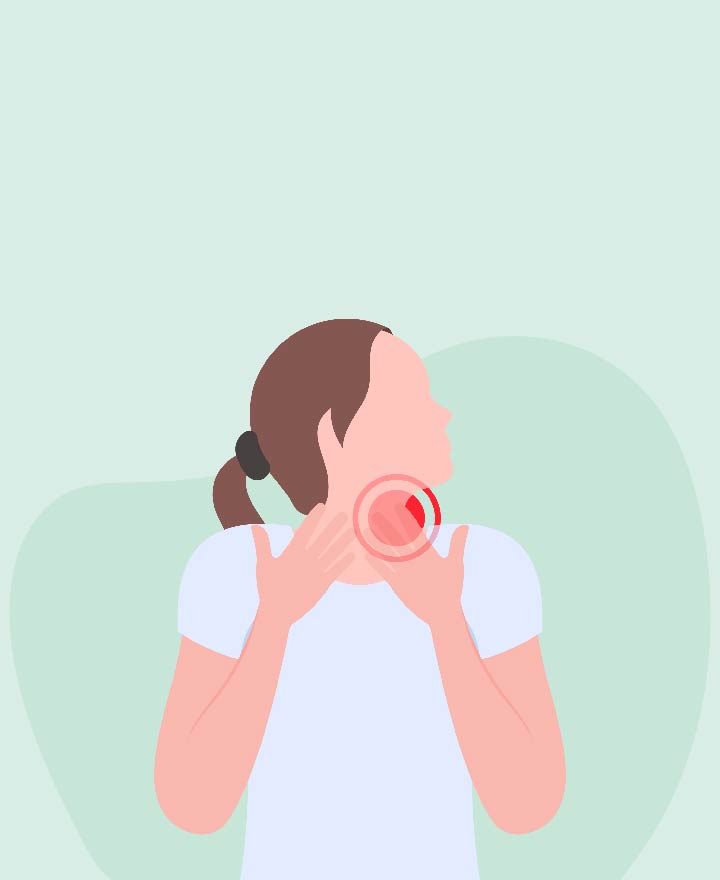

Hemoptysis: Causes, Symptoms, Tests and Treatment
Coughing up blood, can be quite scary. Hemoptysis is a medical term used to describe coughing up blood from the respiratory tract. While it is sometimes caused by minor issues such as infections, it may also indicate more serious conditions like lung disease or cancer. Doctors use tests such as chest X-rays and CT scans to determine the cause of the condition. Mild cases often respond well to medication, but larger amounts of bleeding may require urgent medical care. Read on to learn more about it’s causes, diagnosis, and treatment options available.
What Is Hemoptysis?
Hemoptysis is the medical term for coughing up blood or bloody sputum (mucus from the lungs). The blood originates from the lower respiratory tract – typically the lungs or bronchial tubes – not from the mouth, throat, or gatrointestinal tract. The blood can be bright red and frothy or mixed with mucus.
Hemoptysis can be a warning sign of a serious condition, such as a lung infection, cancer, or vascular problems in the lungs. If you cough up blood, even a small amount, it’s important to see a doctor.
Hemoptysis is usually classified based on how much blood is coughed up:
• Mild Hemoptysis:
Less tan 20 mL of blood (about a tablespoon).
• Non-Massive Hemoptysis:
Between 20 and 150 mL of blood (up to about a cup).
• Massive Hemoptysis:
More than 150-600 mL of blood within 24 hours, or a large amount at one time. This type can block airways and stop the lungs from working properly, making it a medical emergency.
Causes
Hemoptysis can happen for various reasons, ranging from mild to serious. Some common coughing up blood causes are:
• Bronchitis (inflammation of the airways)
• Pneumonia (lung infection)
• Tuberculosis (TB)
• Chronic Obstructive Pulmonary Disease (COPD)
• Bronchiectasis (damaged airways that widen and trap mucus)
• Lung Cancer
• Pulmonary Embolism (blood clot in the lungs)
• Trauma or injury to the lungs or airways
• Foreign objects in the airways
• Congestive heart failure
• Using blood thinners (anticoagulants)
• Drug use (crack/cocaine).
• Parasitic infection
• Pulmonary arteriovenous malformations (AVMs)
• Endometriosis
• Sarcoidosis
• Lupus
In some cases, the cause of hemoptysis remains unknown even after testing. This is called ‘idiopathic hemoptysis.’
Hemoptysis vs. Similar Conditions
Coughing up blood can sometimes be mistaken for other conditions. These look very similar to hemoptysis, but the source of the blood is different. Tests are often necessary to distinguish them.
Here are some conditions that may look like hemoptysis:
• Pseudohemoptysis:
Blood appears to be coming from the lungs but actually comes from the mouth, throat or nose. It may be due to bleeding gums, nosebleeds or throat irritation.
• Hematemesis:
This is vomiting blood, usually from the stomach or food pipe. The blood is often darker and may look like coffee grounds.
• Epistaxis:
Blood from the nose can trickle down the throat and be coughed out, making it seem like it came from the lungs.
When to Seek Medical Attention
• If hemoptysis is persistent, recurrent, or massive
• If it’s accompanied by symptoms like weight loss, night sweats, fever, chest pain, or shortness of breath.
Diagnosis and Tests
For diagnosis, doctors may use a combination of physical exams, questions about symptoms and the following tests:
• Chest X-ray:
First-line test to check for infections, tumours, or lung damage.
• CT Scan:
Gives a more precise view of the lungs and can spot problems a regular X-ray may miss.
• Sputum Culture:
A sample of mucus coughed up from the lungs is tested for bacteria, viruses, or tuberculosis.
• Bronchoscopy:
A thin tube attached to a camera is inserted into the lungs to see where the bleeding is coming from.
• Blood Tests:
To check for infections, clotting problems, or signs of inflammation.
• Pulmonary Arteriography:
A special imaging test that shows how blood flows through the lungs. It’s useful for detecting abnormal blood vessels or clots.
• Complete Blood Count (CBC):
Checks levels of red blood cells, white blood cells, and platelets.
• Urinalysis:
Can help detect signs of autoimmune diseases that affect both the lungs and kidneys.
• Coagulation Tests:
Assesses how well your blood clots, which can help find bleeding disorders.
• Arterial Blood Gas (ABG):
Measures oxygen and carbon dioxide levels in the blood to check how well your lungs are working.
• Pulse Oximetry:
A small device (usually clipped on your finger) checks the amount of oxygen in your blood.
Treatment
Treatment for hemoptysis mainly depends on two things: how much blood is being coughed up and what is causing it. While mild cases may go away with simple care, more serious bleeding can be life-threatening and needs urgent medical attention.
A) Mild to Moderate Cases
When the amount of blood is small, treatment usually focuses on the underlying cause. Most people don’t need emergency care in these situations.
Common treatment options include:
• Antibiotics for infections like bronchitis or pneumonia
• Cough suppressants to reduce irritation in the airways
• Stopping or adjusting blood thinners if they are contributing to bleeding
• Anti-inflammatory medications for autoimmune or lung conditions
B) Severe or Life-Threatening Cases
If someone is coughing up a large amount of blood or experiencing trouble breathing, they may need to be admitted to the hospital immediately. The primary goal is to keep the airways open, maintain oxygen levels, and control bleeding promptly.
Doctors may use:
• Oxygen support or a breathing tube, if needed.
• Positioning techniques to protect the healthy lung.
• Medications that help control bleeding or support clotting.
• Bronchoscopy, a procedure that lets doctors look into the airways and sometimes treat the bleeding directly.
• Embolisation, a method where blood vessels are sealed from the inside to stop the bleeding.
• Surgery, in rare cases, if other treatments don’t work and the bleeding is coming from a damaged part of the lung.
C) Long-Term Treatment and Follow-Up
After the bleeding is under control, doctors focus on preventing it from happening again. Long-term treatment depends on the condition behind the bleeding. For example:
• TB or lung infections may need months of antibiotics.
• Lung cancer might require chemotherapy, radiation, or surgery.
• Autoimmune diseases often need ongoing care with steroids or other medications.
Conclusion
Hemoptysis should never be ignored, especially if it happens more than once or involves a large amount of blood. While minor infections can sometimes cause it, it may also be a sign of a more serious health problem. Getting a timely medical evaluation can make a big difference in preventing complications and ensuring proper treatment.
One of the important components of our overall wellness is also being financially secured. Healthcare emergencies can happen any time, but a good health insurance policy can protect you from such uncertain situations. To know more about Wellness and other health related tips, visit the wellness corner.
Sources: webmd.com, osmosis.org, my.clevelandclinic.org, templehealth.org, pulmonologyadvisor.com
Disclaimer: This blog provides general information and discussions about health and related subjects. The information and other content provided in this blog, website or any linked materials are not intended and should not be considered or used as a substitute for medical advice, diagnosis or treatment. Kindly contact your doctor before starting a new medicine or health regime.
Related Articles
Published on June 24, 2025















 Health Insurance
Health Insurance  Travel Insurance
Travel Insurance  Car Insurance
Car Insurance  Cyber Insurance
Cyber Insurance  Critical Illness Insurance
Critical Illness Insurance
 Pet Insurance
Pet Insurance
 Bike/Two Wheeler Insurance
Bike/Two Wheeler Insurance  Home Insurance
Home Insurance  Third Party Vehicle Ins.
Third Party Vehicle Ins.  Tractor Insurance
Tractor Insurance  Goods Carrying Vehicle Ins.
Goods Carrying Vehicle Ins.  Passenger Carrying Vehicle Ins.
Passenger Carrying Vehicle Ins.  Compulsory Personal Accident Insurance
Compulsory Personal Accident Insurance  Travel Insurance
Travel Insurance  Rural
Rural